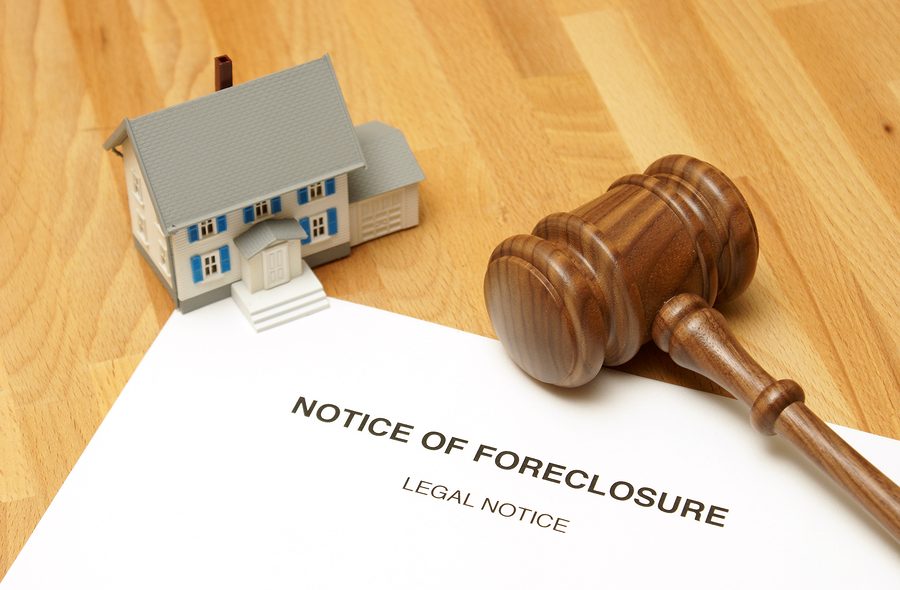The coronavirus (COVID-19) pandemic has thrown countless Americans into a financial tailspin. Many consumers were pushed out of jobs and put into the position where they are not able to pay the most basic of living expenses, including mortgage payments, to stay in their homes. As the pandemic continues, these homeowners are now put in a terrifying position, facing the real possibility that they could lose their homes.
At the start of the pandemic, lawmakers worked hard to try to keep Americans from facing this possibility by passing the CARES Act. One major part of this stimulus package was the ability for borrowers who carried federally backed mortgages to request a forbearance for up to 180 days on their loan obligations. The hope was this measure would give distressed homeowners breathing room and a chance to stay in their homes during this time of financial difficulty. If needed, borrowers could then request an additional 180 days of relief.
During the forbearance, lenders and mortgage servicers were barred from foreclosing on borrowers who held federally backed mortgages, which included those serviced by Fannie Mae and Freddie Mac. This protection began on March 18 and was set to expire on August 31.
It does not appear as if the COVID-19 crisis will be ending any time soon, and in response, the Federal Housing Finance Agency issued a statement last week that Fannie Mae and Freddie Mac would extend the moratorium on foreclosures through the end of 2020. However, all this relief will have some serious tax implications for homeowners.
It is estimated that as of July, 8,892 homes in the U.S. had foreclosure filings. This figure is down 83 percent from the previous year, but with the current crisis, these numbers are expected to increase in 2021.
Once the ban on foreclosures are lifted, if a homeowner is not able to successfully stay in his or her home, tax complications could come along with the forced sale of the home through foreclosure.
During a foreclosure, the creditor has basically made the decision to no longer take reasonable efforts to collect on the debt and to choose other means to recoup their losses. Most foreclosure sales result in homes selling at prices far below what is owed. Normally, if a borrower’s debt is forgiven at an amount far below what he or she originally owed, the difference is considered taxable income to the borrower. With a mortgage, certain tax protections exist to help homeowners. If the borrower’s foreclosed home is his or her principal residence, the borrower can take advantage of a tax break known as the qualified principal residence indebtedness exclusion. This tax break allows the borrower to exclude up to $2 million if the borrower is married of the forgiven debt. This amount covers most Florida homeowners.
The problem is this tax break is set to expire at some point. If it is not renewed by Congress, the tax break no longer exists. It was extended at the end of 2019, but the break only covers debt discharges occurring before January 1, 2021. If the homeowner is facing a foreclosure process currently, it is highly possible that the forced sale of the home will not occur before the start of 2021, especially if the ban on foreclosures continues till the end of the year.
Usually, the borrower is informed how much was forgiven for the debt through a Form 1099-C, which is sent to the person holding the debt. That amount often comes as a major surprise to homeowners who are completely unaware that they could be on the hook for their forgiven debt. In fact, many homeowners are unaware of this possibility at all. These individuals could receive quite the unpleasant surprise in 2021.
If someone is facing foreclosure, it is highly recommended that he or she talk to a tax professional now. A tax accountant can work with the individual through all the scenarios available to him or her, taking advantage as many other tax exemptions that could be used to offset the penalties associated with the forgiven amount. One of these possibilities is to claim insolvency after accounting all the person’s assets and debts. If the person is insolvent on the day of the foreclosure sale when the debt is forgiven, there may be a way to avoid paying taxes on that amount. That possibility is limited, and without the help of an accountant, it is unlikely the homeowner will have success.
Ultimately, the best course of action for homeowners facing foreclosure now is to work directly with the bank or mortgage servicer. Stay in touch with them and keep them informed of the consumer’s financial situation. Work with them to head off any late payments before they get to a point where they are out of control. If this is not possible, consult a bankruptcy attorney for advice on other legal avenues that may be available to the individual.
Please click here to read more.
Choosing the right attorney can make the difference between keeping your home or losing it in foreclosure. A well-qualified Miami foreclosure defense attorney will not only help you keep your home, but they will be able to negotiate a loan that has payments you can afford. Miami foreclosure defense attorney Timothy Kingcade has helped many facing foreclosure alleviate their stress by letting them stay in their homes for at least another year, allowing them to re-organize their lives. If you have any questions on the topic of foreclosure, please feel free to contact me at (305) 285-9100. You can also find useful consumer information on the Kingcade Garcia McMaken website at www.miamibankruptcy.com

